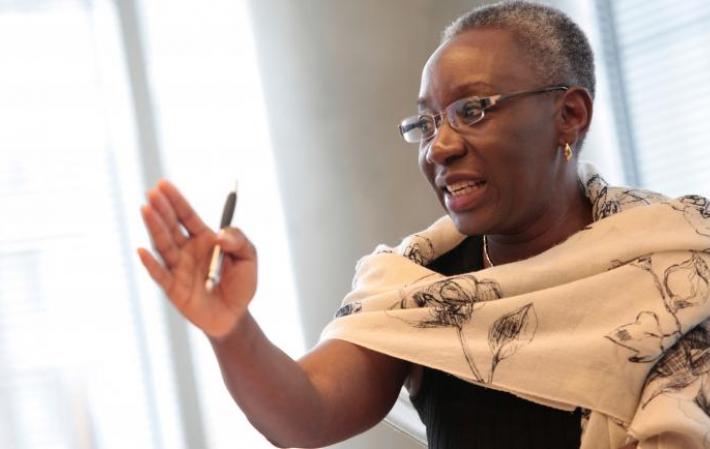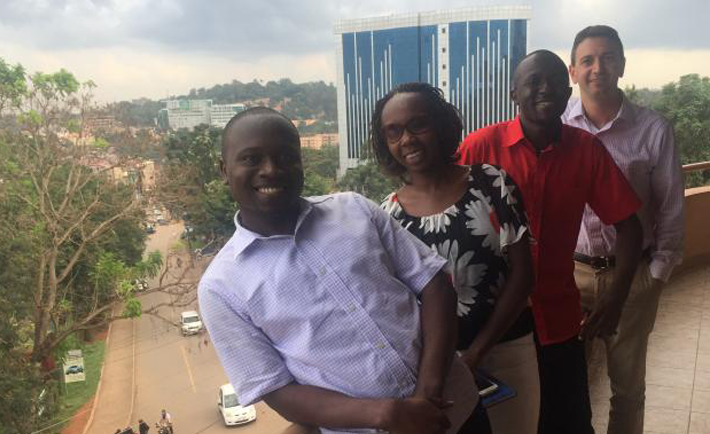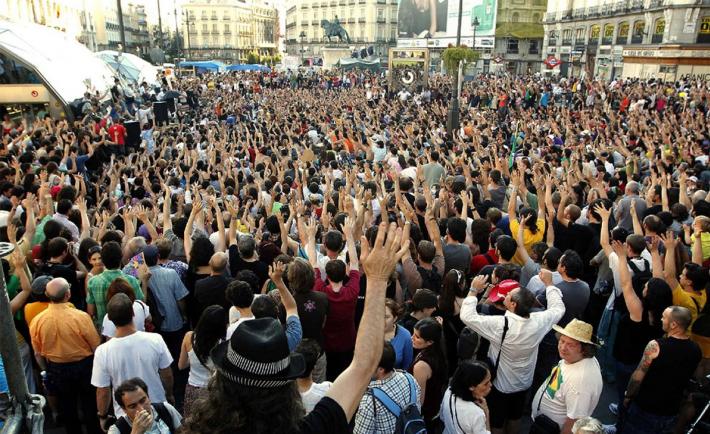
Sandra Pepera, Senior Associate and Director for NDI's Gender, Women and Democracy team.

A party organizer practices voter canvassing through a door-to-door exercise as part of an NDI political party training on July 29, 2015. Photo credit: Munira Aziz, NDI Afghanistan
Canvassing, an organized system of face-to-face citizen outreach, has long been used by politicians and advocacy groups to encourage constituents to vote, assess the habits and preferences of voters, and gather public opinion data. The time-honored tradition of knocking on doors remains an integral part of campaigns, though new mobile technology is starting to change the way canvassers operate on the ground.
NDI’s Citizen Participation and Political Parties teams hosted an online discussion called a TweetTalk on International Youth Day last week. Participants shared ideas and examples of how political parties can support youth political participation through the hashtag “#YouthParty” on Twitter.

Photo credit: Mosa'ab Elshamy
Supporting citizens to enhance their civic voice, expanding space for political participation and improving government accountability are interrelated objectives for NDI programs. Each week, the Citizen Participation team shares a resource with NDI staff that provides innovative perspectives and new research for working towards those objectives. Reflecting the recently announced theme for International Democracy Day 2015, “Space for Civil Society,” this month’s resources contribute to a growing body of literature on how to measure and expand civic space and challenge the outcomes-based approach to policymaking and instead emphasize the importance of inclusive decision-making.

NDI meets with staff of OutBox Hub in Kampala, Uganda.
The goal of a planning a technology program assessment trip is to produce a detailed plan to meet program objectives and a shared vision between key stakeholders -- including the DC office, the partners, the field office team and other collaborators -- on how to make it all happen. We also need to be able to make sure that the partner's priorities and needs are matched to the appropriate tools.

Parazit co-host Kambiz Hosseini and The Daily Show host Jon Stewart on the set of The Daily Show (Photo: Kambiz Hosseini).
Though the studio lights have dimmed for the last time on Jon Stewart’s tenure as host of The Daily Show, his brand of political satire -- which aimed to keep leaders accountable, the media honest and youth interested in government -- shines on through its immense success with young audiences at home and abroad. The Daily Show sparked a new era of political satire, a step beyond the traditional editorial cartoon, satirical magazine and occasional political joke on late-night television. In the United States, Stewart’s style of “fake news” revolutionized not only satire in (and of) the media, but how youth engage with politics.

NDI’s Layla Moughari helps members of parliament log into a questionnaire about their role in domestic resource mobilization. (Photo credit: Aretha Francis, Women in Parliaments Global Forum)
NDI co-organized a panel on July 13, on the role of parliamentarians in using “domestic resource mobilization” to advance gender equality as part of the Post-2015 Development Agenda. Domestic resource mobilization refers to the use of a country’s public and private funds -- including tax revenues -- to finance development goals. Globally, significant domestic resources that could be spent to support gender equality and empowerment are lost every year through corruption, corporate tax evasion and inefficient tax collection systems.
Dan Wagner, CEO of Civis Analytics and National Analytic Director for the 2008 and 2012 Obama campaigns, participates in a Red Innovación Google Hangout on campaign strategies.
Since its launch three years ago, online platform Red Innovación has helped activists throughout Latin America efficiently share tools and materials that contribute to political reform and good governance initiatives. In honor of next month's launch of the new Virtual Diploma in Communication Policy, which is hosted by Argentine partner Civil Association of Popular Studies (Asociacion Civil de Estudios Populares, ACEP) in partnership with Red Innovación and will provide training on new communications strategies, here is a recap of Red Innovación’s successes.

Protesters gather in Madrid’s Puerta del Sol square as part of the 15-M anti-austerity movement. Source: Wikimedia Commons
A populist wave has crashed down upon the streets of Europe. Populist parties, old and new, left and right, have been dominating headlines in Europe over the past few years. Such parties are often led by charismatic leaders, and they claim to represent the will of the people against the elite or status quo. “The people” they appeal to are often those who feel alienated by European integration -- those who feel threatened by economic reform or lenient immigration policies.
Nearly five years after protests against former authoritarian leader Zine El Abidine Ben Ali began in December 2010, Tunisia has adopted a modern constitution and, for the first time, democratically elected a new legislature and president. Tunisia has been lauded as an inspirational -- though not untroubled -- democracy within the Middle East and North Africa region. To ensure the current security concerns and economic difficulties do not encourage undemocratic intervention in the process, it is important that the U.S. government and international community continue to support the new Tunisian government as it makes difficult choices.
The NDI is seeking to hire a Deputy Chief of Party to support its political party development program in Pakistan. The position is based in Islamabad, Pakistan and available in July 2015.